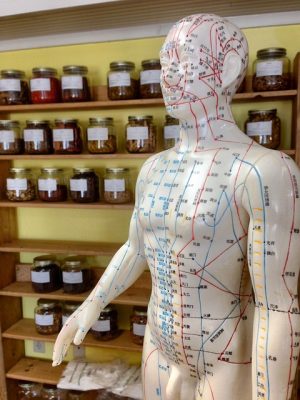Post-traumatic stress disorder (PTSD) significantly impacts daily life, but effective treatment through a combination of therapy, medication, and support groups can manage symptoms. Support groups provide safe spaces for connection, shared understanding, and mutual assistance, fostering healing through community resilience. Group therapy, led by professionals specializing in trauma-informed care, offers a powerful tool for recovery by encouraging open dialogue, empathy, and coping strategies. The ideal support group should be aligned with personal preferences, focusing on therapeutic exercises or experience sharing to support treatment goals. Together, these resources transform lives, alleviating isolation and promoting emotional healing for PTSD management.
Support groups play a pivotal role in the healing journey of individuals suffering from Post-Traumatic Stress Disorder (PTSD). This article delves into the profound impact of group therapy as a powerful tool for PTSD treatment, offering a safe space for individuals to share experiences and strategies. We explore the benefits of group support, provide insights on finding suitable groups, and guide readers through creating therapeutic environments fostering effective communication. By understanding these aspects, individuals can take significant steps towards managing and overcoming PTSD.
Understanding PTSD and Its Impact

Post-traumatic stress disorder (PTSD) is a mental health condition that can affect individuals after they experience or witness a traumatic event. It’s more than just feeling scared or upset; PTSD changes a person’s response to everyday life and events, often leading to symptoms like flashbacks, nightmares, severe anxiety, and avoidance behaviors. The impact of PTSD can be profound, affecting not only an individual’s mental health but also their physical well-being, relationships, and overall quality of life.
Effective PTSD treatment is crucial for managing these symptoms and helping individuals regain control of their lives. Support groups play a vital role in this process by providing a safe and supportive environment where people with PTSD can connect, share experiences, and offer mutual assistance. These groups facilitate open discussions, foster understanding, and promote healing through the power of community and shared resilience.
The Role of Support Groups in Healing

Support groups play a pivotal role in the healing process for individuals suffering from Post-Traumatic Stress Disorder (PTSD). These groups offer a safe and non-judgmental space where PTSD sufferers can connect with others who share similar experiences, fostering a sense of community and understanding. Members can openly discuss their struggles, fears, and coping mechanisms, which helps normalize their feelings and reduces the stigma often associated with seeking help for mental health issues.
In the context of PTSD treatment, support groups provide a unique opportunity for peer-to-peer learning and emotional support. Sharing personal stories and strategies in a group setting empowers individuals to see they are not alone in their battle. This collective experience can lead to enhanced resilience, improved coping skills, and a greater sense of control over one’s mental health. Additionally, the consistent presence of supportive peers can offer encouragement and accountability as individuals navigate their healing journey.
Benefits of Group Therapy for PTSD

Group therapy offers a unique and powerful approach to PTSD treatment, providing individuals with a supportive network of peers who understand their journey. In a safe and structured environment, members can share their experiences, emotions, and coping strategies, fostering a sense of community and belonging. This collective setting facilitates open communication, allowing participants to learn from one another’s resilience and gain different perspectives on their trauma. By discussing their PTSD symptoms, individuals can challenge their isolation and realize they are not alone in their struggles.
Additionally, group therapy sessions encourage active participation and engagement, empowering members to take control of their healing process. Through group dynamics, individuals can develop valuable social skills, learn effective communication techniques, and gain insights into managing their symptoms. This collaborative environment promotes empathy, reduces stigma, and enables members to build meaningful connections, all of which contribute to improved mental health and well-being in the long term.
Finding the Right Support Group

Finding the right support group is a crucial step in effective PTSD treatment. It’s essential to look for groups led by trained professionals and specializing in trauma-informed care, ensuring a safe and understanding environment. Consider the group’s size—smaller groups often foster deeper connections—and check if they offer different meeting formats, like online sessions or in-person gatherings, to suit personal preferences.
Additionally, review the group’s focus and activities. Some groups emphasize sharing experiences, while others incorporate therapeutic exercises. Look for a group that aligns with your comfort level and treatment goals. Remember that the right support group can enhance healing by providing a sense of community, reducing feelings of isolation, and offering valuable coping strategies within a supportive network.
Creating a Safe and Therapeutic Environment

Support groups play a vital role in PTSD treatment by fostering a safe and therapeutic environment. This space allows individuals who share similar experiences to connect, fostering a sense of belonging and understanding. In this nurturing atmosphere, members can openly discuss their struggles, fears, and coping mechanisms without fear of judgment. Such vulnerability is crucial for processing trauma and building resilience.
The therapeutic aspect comes from the group dynamic itself—the shared narrative of overcoming adversity. Members learn from each other’s experiences, gaining insights that validate their own feelings and struggles. Moreover, group interactions encourage empathy and social support, enhancing the overall recovery process for PTSD sufferers.
Facilitating Effective Communication

Support groups play a vital role in the PTSD treatment journey by fostering an environment conducive to effective communication. In this safe and supportive space, individuals with post-traumatic stress disorder (PTSD) can openly share their experiences, fears, and coping mechanisms without fear of judgment. This uninhibited exchange allows members to gain valuable insights from one another, offering unique perspectives and strategies that may not be readily available through traditional therapy sessions.
Effective communication within these groups empowers individuals to process their traumas collectively, leading to enhanced emotional healing. By actively listening and sharing personal stories, participants can humanize each other’s experiences, reducing feelings of isolation often associated with PTSD. This collective understanding fosters empathy, encourages accountability, and strengthens the bond among group members—all essential components for successful PTSD treatment.
Resources and Next Steps for PTSD Sufferers

For individuals navigating the complexities of Post-Traumatic Stress Disorder (PTSD), finding the right resources and next steps can be transformative. Support groups play a pivotal role in this journey, offering a safe and understanding environment where peers share similar experiences. These groups provide a sense of community, breaking down feelings of isolation often associated with PTSD. By connecting with others who have overcome similar challenges or are currently facing them, individuals can access emotional support, practical advice, and valuable coping strategies.
Beyond support groups, various other avenues for PTSD treatment exist. Therapy, particularly cognitive-behavioral therapy (CBT) and eye movement desensitization and reprocessing (EMDR), has proven effective in helping individuals process traumatic memories and reduce symptoms. Medication, when combined with therapy, can also be beneficial in managing symptoms. Online resources, hotlines, and mobile apps are additionally valuable tools for self-management, offering educational content, mindfulness exercises, and virtual support communities.
